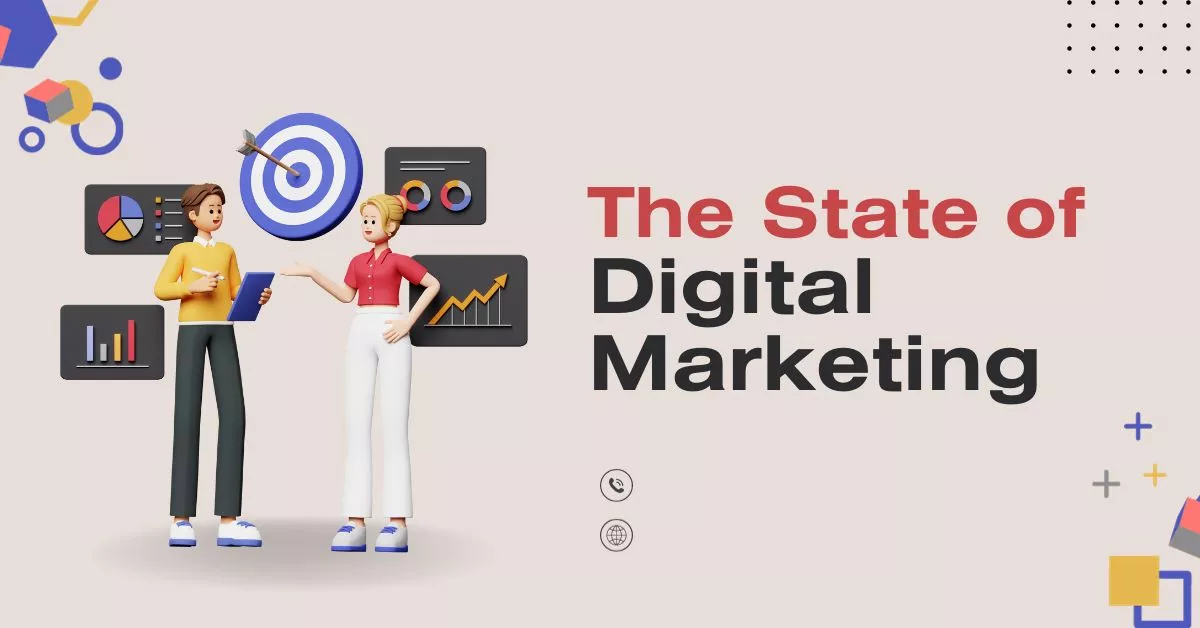In the ever-evolving realm of digital marketing, understanding the prevailing trends, challenges, and innovations is pivotal for marketers aiming to remain competitive and effective. Here’s a comprehensive overview of the current state of digital marketing.

The Dynamic Landscape of Digital Marketing:
1. Rise of Omnichannel Strategies: Marketers are leveraging multiple channels—social media, email, websites, mobile apps to create seamless customer experiences across touchpoints, fostering engagement and brand loyalty.
2. Data-Driven Decision Making: Access to robust analytics and consumer data empowers marketers to make informed decisions, personalize content, and optimize campaigns for higher ROI and customer satisfaction.
3. Artificial Intelligence and Automation: AI-driven tools streamline processes, enhance personalization, and provide predictive insights, enabling marketers to efficiently manage campaigns and engage audiences effectively.
4. Content Reigns Supreme: Engaging and valuable content continues to drive digital marketing success. From video marketing to interactive content, compelling narratives play a pivotal role in audience engagement.
5. The Significance of SEO and Voice Search: SEO remains crucial, with a focus on quality content, mobile optimization, and voice search readiness, aligning strategies with evolving search engine algorithms.
6. Privacy Concerns and Consumer Trust: Stricter data privacy regulations necessitate transparent data handling, requiring marketers to build trust through ethical data practices and transparent communication.

Conclusion:
Understanding and adapting to the dynamic landscape of digital marketing is crucial for marketers aiming to stay relevant and effective. By embracing technological innovations, leveraging data insights, and prioritizing consumer trust, marketers can navigate this evolving landscape to create impactful and resonant digital marketing strategies.
Frequently Asked Questions
What makes an omnichannel strategy essential in digital marketing?
Omnichannel strategies ensure consistent and personalized experiences across various touchpoints, enhancing customer satisfaction and retention.
How does data drive decision-making in digital marketing strategies?
Data analytics provide insights into consumer behavior, preferences, and trends, guiding marketers in crafting targeted campaigns and optimizing user experiences.
What role does AI play in enhancing digital marketing efforts?
AI streamlines processes, automates tasks, facilitates personalization, and provides predictive insights, enhancing campaign efficiency and effectiveness.
Why is content creation crucial in the digital marketing landscape?
Engaging and relevant content fosters audience engagement, brand visibility, and trust, serving as a cornerstone of successful digital marketing initiatives.
How important is SEO adaptation to voice search and changing algorithms?
Adapting SEO strategies to voice search and evolving algorithms ensures visibility and relevance, aligning content with user behavior and search trends.
How can marketers address privacy concerns in their digital strategies?
Marketers must prioritize ethical data practices, transparent communication, and compliance with data protection regulations to build and maintain consumer trust.










